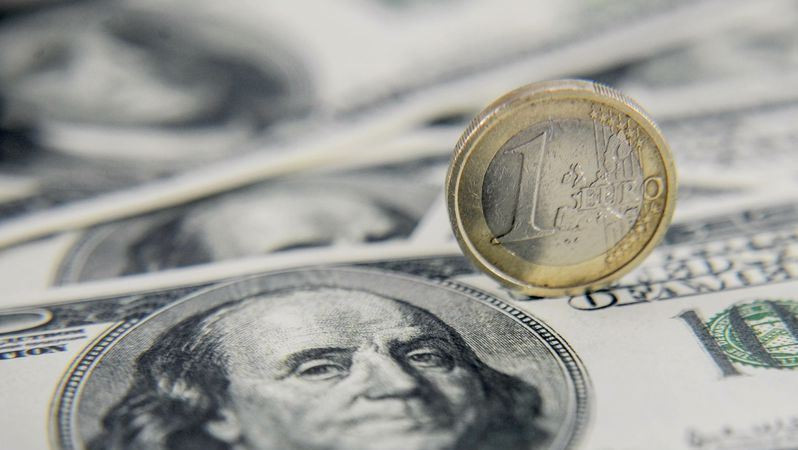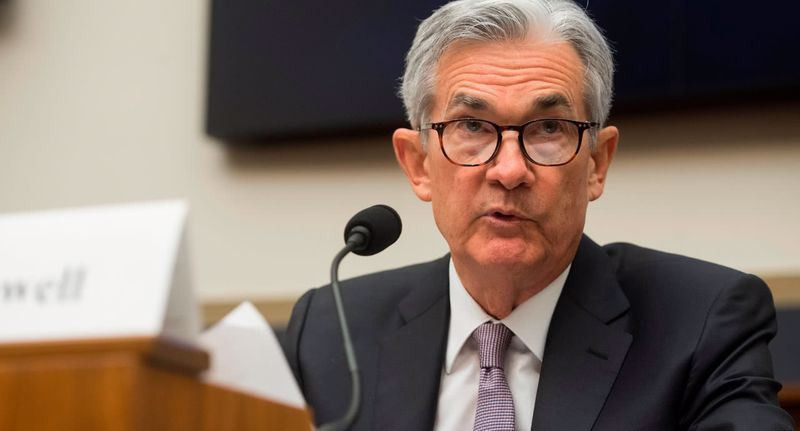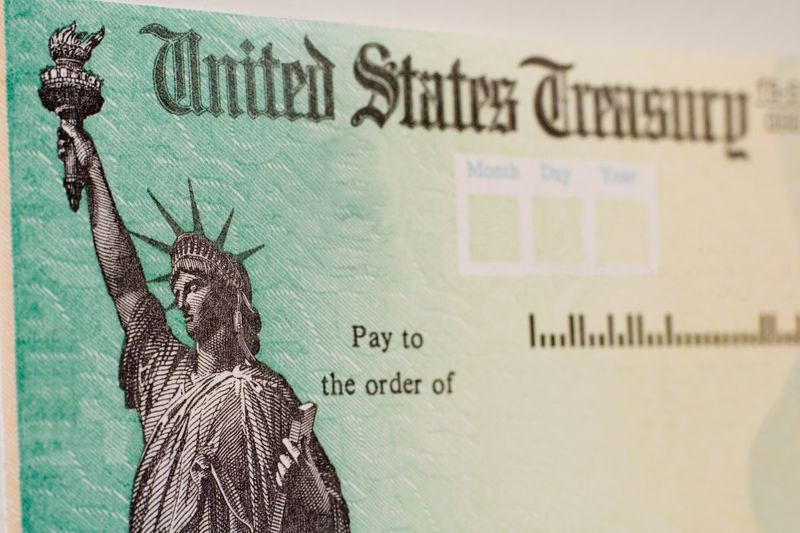
Since the beginning of 2022, the US currency has gained 3% in weight, as traders expected the Federal Reserve to raise rates, and Russia's launch of a special operation in Ukraine last month only reinforced this growth. However, over the past week, the greenback has lost some of the points scored.
Apparently, investors preferred to focus not on the short-term consequences of the Russian-Ukrainian conflict and the tightening of the Fed's policy, but on the long-term prospects and hopes for post-crisis growth of the global economy.
"We expect that the stabilization of risk appetite and the extension of the global cycle will help reduce the demand for the dollar as a safe haven asset and narrow the history of the relative superiority of the United States. This is likely to lead to a broader depreciation of the USD in the second half of 2022," Barclays strategists noted.
"Although a more hawkish monetary policy of the Federal Reserve, a stable American economy and demand for protective currencies due to the conflict between Russia and Ukraine will support the dollar in the short term, the situation may change as global growth improves," they believe.
After a slight hitch at the beginning of the week, global markets returned to growth during the last session.
The situation on the stock markets continued to stabilize, as traders began to refrain from the previous violent reactions to the news from Ukraine, coming to terms with the new reality.
Apparently, investors did not take seriously the statement made on Monday by Ukrainian President Vladimir Zelensky that the failure of peace talks between Moscow and Kiev could lead to the outbreak of World War III. Although experts do not rule out the possibility of the Russian-Ukrainian conflict escalating into a larger-scale war, most market participants still consider this scenario unlikely.
Investors were not particularly frightened by the words of Fed Chairman Jerome Powell that the central bank could accelerate the tightening of monetary policy.
"If we see the need for more aggressive measures in the form of a rate increase of more than 25 basis points at one or more meetings, we will do it. And if we consider that we need to make monetary policy tougher than the definition of "neutral level" provides, we will do that," he said.

The dollar showed the largest one-day percentage gain since March 10 in response to the blatantly hawkish speech of Powell. US stock indexes ended Monday's trading lower after Powell's speech, although the S&P 500 fell only by a symbolic 0.04%.
It seems that market participants preferred to focus on the words of the head of the US central bank that the US economy is stable enough to withstand the tightening of monetary policy.
Already on Tuesday, the upward momentum of USD, received from Powell's comments, weakened, and the growth of stock indices resumed.
"On the one hand, the dollar receives support due to the more hawkish position of the Federal Reserve, on the other hand, the market assumes that the central bank will be able to provide a "soft landing", and this already supports risk appetite," Western Union analysts said.
In the absence of publications of important macroeconomic data and new events related to the Russian-Ukrainian conflict, risk appetite returned to the markets on Tuesday.
After the initial breakthrough to the 99.00 mark, the greenback experienced difficulties in attracting buyers as a "safe haven" asset. The dollar failed to maintain its strength in the afternoon, and closed in negative territory.
Meanwhile, key Wall Street indexes managed to recoup Monday's losses. In particular, the S&P 500 rose more than 1%.
From the lows of the beginning of March, recorded around 4260, the broad market index increased by about 5%. At the same time, it still remains 6% below the record highs reached in January in the area of 4800.
"The market is holding up well, given that the Fed has started raising interest rates to combat high inflation. A really strong labor market and decent growth in the US economy are supporting stocks, while investors seem to expect a slowdown in inflation over the next two years or so," Wells Fargo analysts said.
At the same time, some experts do not see strong drivers capable of justifying market optimism, and believe that the rally of risky assets is only a short-term rebound of the bear market.
On Monday, Powell said that the US economy is quite strong and has good opportunities for a tighter monetary policy, adding that he does not expect a recession this year.
However, the market of fixed-income instruments does not believe the economic optimism of the head of the Fed, signaling that a "soft landing" if the central bank follows the path outlined by Powell. It will be not only difficult, but almost impossible.

After the Fed chairman's speech, the yield on 10-year US Treasuries jumped above 2.3%, reaching the highest level since May 2019. At the same time, the yield on 2-year bonds is not that far from the "ten-year". The day before, it rose to 2.152%.
The narrowing gap between the yields of short-term and long-term US bonds raises concerns that the bond market is close to signals of an impending recession.
It is worth noting that the inversion of the US yield curve was almost always followed by a recession in the country after six months.
The three "horsemen" of the recession:
1) Inversion of the yield curve. This indicator indicates that short-term loans are more expensive than long-term ones, which reduces the number of consumer loans. And this, in turn, leads to a reduction in consumer spending.
The inversion was observed during the so-called "dotcom bubble" and during the mortgage crisis of 2007.
2) Commodity price shock. In particular, the oil crisis of 1979 led to a recession.
3) The hawkish policy of the Fed. An example here is the "short" crisis of the early 1980s, when the central bank sharply raised interest rates to cope with inflation.
At least one of these factors is now present in the world – a shock in commodity prices, which is exacerbated by disrupted supply chains.
It is obvious that the expectations of the Fed lag far behind the real market conditions: the high cost of energy resources will soon be joined by an increase in food prices. The central bank did not dare to raise the rate by 0.5% in March, but will be forced to do so in May.
The futures market estimates a 66% probability of raising the federal funds rate by 50 bps at the next FOMC meeting.
If investors continue to put into quotes a double increase in the key rate by the central bank in May, the dollar may remain stable against its competitors.
The positive sentiment seen in stocks on Tuesday faded fairly quickly. On Wednesday, European stock indices are trading with a weakened mood and pull down their US counterparts. In particular, the S&P 500 is losing about 0.5%. Tracking the decline in risk appetite, the USD index reverses Tuesday's pullback, targeting 99.00 again.
The next barrier occurs just before the March 14 weekly high at 99.30. A breakthrough of this level will bring a retest of the March 7, 2022 peak at 99.40 back on the dollar bulls' radars.
The economic calendar today, like yesterday, is poor in important releases, so the focus remains on events on the geopolitical front.

Many investors fear that military action in Ukraine, and especially rising energy prices, could drive up inflation and slow down economic growth not only in the US but also in Europe.
On Wednesday, US President Joe Biden is heading to Brussels for talks with NATO and EU leaders. He is expected to announce new sanctions against Moscow and push Europe to reduce dependence on Russian oil and gas.
"An embargo on Russian oil will increase the likelihood that Russia will turn off the gas valve to Europe in response," Commerzbank strategists said, saying such a scenario could plunge the EU into recession.
They believe the euro will inevitably suffer as the ECB lags behind its peers in the global monetary cycle and the Fed is likely to be much more aggressive in dealing with inflationary fallout than the European Central Bank.
Economists at ING still expect EUR/USD to move lower towards 1.0900 in the coming sessions.
"The divergence between the Fed and the ECB, exacerbated by the conflict in Ukraine, limits any EUR/USD recovery to 1.1100 in our view. We continue to believe that a move towards 1.0900 is more likely over the next few days," they said.
While the weakened mood of global indices helps the dollar to rebalance, the EUR/USD pair loses points scored on Tuesday and reorients to the downside.
Key support lies at 1.1000 (the level where the 50- and 100-day moving averages converge). If the pair closes below this level, bears could target 1.0940 (23.6% Fibonacci retracement) and 1.0900 further.
On the other hand, 1.1040 (50% Fibonacci retracement) is the initial resistance. If the bulls can turn this level into support, they will head towards 1.1080 (61.8% Fibonacci retracement) and then 1.1100.





















